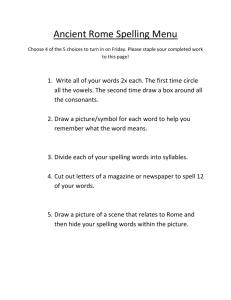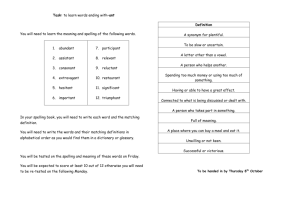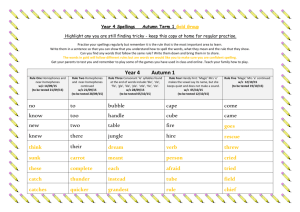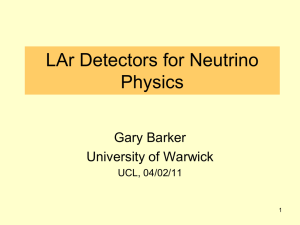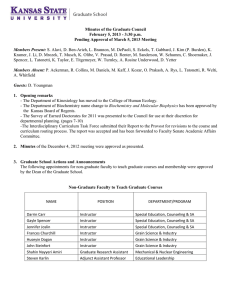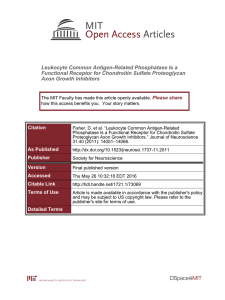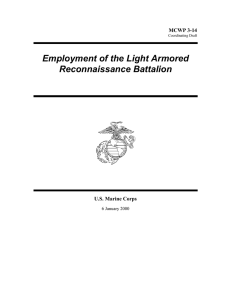Year 3 and 4 Word List
advertisement
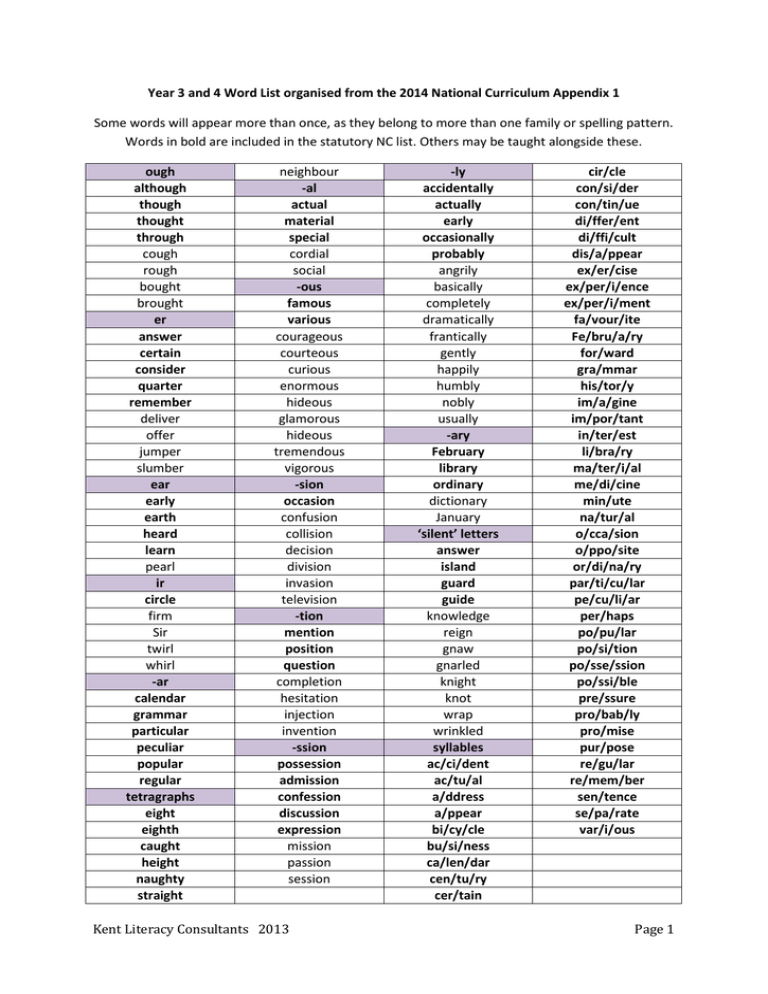
Year 3 and 4 Word List organised from the 2014 National Curriculum Appendix 1 Some words will appear more than once, as they belong to more than one family or spelling pattern. Words in bold are included in the statutory NC list. Others may be taught alongside these. ough although though thought through cough rough bought brought er answer certain consider quarter remember deliver offer jumper slumber ear early earth heard learn pearl ir circle firm Sir twirl whirl -ar calendar grammar particular peculiar popular regular tetragraphs eight eighth caught height naughty straight neighbour -al actual material special cordial social -ous famous various courageous courteous curious enormous hideous glamorous hideous tremendous vigorous -sion occasion confusion collision decision division invasion television -tion mention position question completion hesitation injection invention -ssion possession admission confession discussion expression mission passion session Kent Literacy Consultants 2013 -ly accidentally actually early occasionally probably angrily basically completely dramatically frantically gently happily humbly nobly usually -ary February library ordinary dictionary January ‘silent’ letters answer island guard guide knowledge reign gnaw gnarled knight knot wrap wrinkled syllables ac/ci/dent ac/tu/al a/ddress a/ppear bi/cy/cle bu/si/ness ca/len/dar cen/tu/ry cer/tain cir/cle con/si/der con/tin/ue di/ffer/ent di/ffi/cult dis/a/ppear ex/er/cise ex/per/i/ence ex/per/i/ment fa/vour/ite Fe/bru/a/ry for/ward gra/mmar his/tor/y im/a/gine im/por/tant in/ter/est li/bra/ry ma/ter/i/al me/di/cine min/ute na/tur/al o/cca/sion o/ppo/site or/di/na/ry par/ti/cu/lar pe/cu/li/ar per/haps po/pu/lar po/si/tion po/sse/ssion po/ssi/ble pre/ssure pro/bab/ly pro/mise pur/pose re/gu/lar re/mem/ber sen/tence se/pa/rate var/i/ous Page 1 Soft ‘c’ bicycle centre century certain circle decide exercise medicine notice recent sentence Double consonants accident address appear arrive business different difficult disappear grammar occasion opposite possess possible pressure suppose Roots and Affixes accident accidental appear appeared disappear disappearing busy business centre central certain certainty circle circular circling complete completion consider considering consideration considerate considerable continue continuation continuance decide decision decisive disappear disappearance early earlier earth earthly eight eighth eighty experiment experimental extreme extremely favourite favouritism fruit fruity fruitiness grammar grammatical guard guarding hear heard hearing heart hearty history historical imagine imagination increase increasing important importance interest interesting knowledge knowledgeable learn learned library librarian Kent Literacy Consultants 2013 medicine medication medicinal natural naturally naughty naughtiness notice noticeable occasion occasionally opposite opposition particular particularly peculiar peculiarity possess possession potato potatoes pressure pressurisation promise promising purpose purposeful quarter quarterly question questionable recent recently regular regularly regularity remember remembrance separate separation separable inseparable straight straightening strange strangeness suppose supposition surprise surprising thought thoughtfulness various variety weight weightless woman womanly miscellaneous breath breathe believe relieve relief length (long) strength (strong) special artificial group soup e-e complete extreme scheme Homographs minute/minute read/read fly/fly lead/lead Page 2 Some words on the Year 3 and 4 Word List have unusual spellings which are not found in other words on the list, such as ‘believe’. It is better to teach these alongside other words which have a similar sound or spelling pattern, even though these words are not included in the list. If there is simply no other word like it, then it goes into the ‘Unique Spelling Chest’, which you can create in your classroom. There are many different strategies to help children learn to spell words. Sometimes the morphology of the word will help. That is, breaking the word up into its constituent parts and looking carefully at the meaning of each part, e.g. the root, prefix or suffix. How does the addition of the affix change the meaning of the word? In other words, simply pronouncing each separate syllable in an obvious and unnatural way, can help – even if that is not how the whole word should be pronounced, e.g. Wed/nes/day. Mnemonics can help too, such as funny rhymes or sayings which help the child to remember the letters. The longer the words become, the less realistic this approach can be. Children’s visual memory will be enhanced by the visual display of plenty of words around their environment too, especially those high frequency words which help children to become fluent, confident writers. Sometimes analogy works well. Dissect words, like a scientist. See how they are made up. Count their phonemes, or syllables. Look for affixes. Segment and blend the word if you can. Above all, encourage children to be fascinated with words, rather than fearful of them. Play Word Detectives to help children become more analytical about how words are put together. Also play plenty of word games, and make your spelling lessons as engaging and multi-sensory as possible. Kent Literacy Consultants 2013 Page 3



